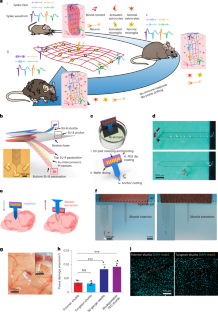妊娠中に女性がパートナーから受けた心理的・身体的暴力が、赤ちゃんの脳の発達に影響を及ぼす可能性があることを示唆する新しい研究結果が発表されました。 A new study suggests psychological and physical violence experienced by women from their partners during pregnancy can shape baby brain development.
2023-02-17 バース大学
◆バース大学の研究者は、ケープタウン大学の研究者と共同で、母親が妊娠中に親密なパートナーからの暴力(IPV)を受けていた南アフリカの乳児143人の脳スキャンを分析しました。親密なパートナーからの暴力には、精神的、身体的、性的な虐待や暴行が含まれます。脳のMRI検査は、平均して生後3週間目の乳児に行われたため、観察されたいかなる変化も子宮内で生じたものである可能性が高いのです。
◆研究チームは、この研究成果を『Developmental Cognitive Neuroscience』誌に発表し、妊娠中に母親がIPVにさらされると、出生直後に確認される幼児の脳構造の変化と関連することを報告しました。これは、妊娠中の母親のアルコール使用や喫煙、妊娠合併症などを考慮しても明らかでした。
◆重要なのは、IPVへの曝露の影響が赤ちゃんの性別によって異なる可能性があることです。女児の場合、母親が妊娠中にIPVにさらされると、感情や社会性の発達に関わる脳の領域である扁桃体の大きさが小さくなることに関連しました。男児の場合、IPVへの曝露は、代わりに、運動の実行、学習、記憶、報酬、動機付けを含む複数の機能に関与する脳の領域である尾状核の大きさと関連していたのです。
◆妊娠中に母親が高いレベルのストレスを経験した子どもが、幼少期やその後の人生で心理的な問題を抱える可能性が高いのは、脳構造の早期変化で説明できるかもしれません。また、脳の発達における性差は、女の子と男の子がしばしば異なる精神衛生上の問題を発症する理由の説明にも役立つかもしれない。しかし、研究者たちは、この研究は子供の感情や認知の発達を分析したものではないことに注意を促している。
<関連情報>
- https://www.bath.ac.uk/announcements/domestic-abuse-in-pregnancy-linked-to-structural-brain-changes-in-babies/
- https://www.sciencedirect.com/science/article/pii/S1878929323000154
出生前の母親の親密なパートナーからの暴力への曝露は、幼い乳児の脳構造における性特異的変化と関連している。南アフリカの出生コホートからのエビデンス Antenatal maternal intimate partner violence exposure is associated with sex-specific alterations in brain structure among young infants: Evidence from a South African birth cohort
Lucy V. Hiscox, Graeme Fairchild, Kirsten A. Donald, Nynke A. Groenewold, Nastassja Koen, Annerine Roos, Katherine L. Narr, Marina Lawrence, Nadia Hoffman, Catherine J. Wedderburn, Whitney Barnett, Heather J. Zar, Dan J. Stein, Sarah L. Halligan
Developmental Cognitive Neuroscience Available online: 6 February 2023
DOI:https://doi.org/10.1016/j.dcn.2023.101210

Abstract
Maternal psychological distress during pregnancy has been linked to adverse outcomes in children with evidence of sex-specific effects on brain development. Here, we investigated whether in utero exposure to intimate partner violence (IPV), a particularly severe maternal stressor, is associated with brain structure in young infants from a South African birth cohort. Exposure to IPV during pregnancy was measured in 143 mothers at 28–32 weeks’ gestation and infants underwent structural and diffusion magnetic resonance imaging (mean age 3 weeks). Subcortical volumetric estimates were compared between IPV-exposed (n = 63; 52% female) and unexposed infants (n = 80; 48% female), with white matter microstructure also examined in a subsample (IPV-exposed, n = 28, 54% female; unexposed infants, n = 42, 40% female). In confound adjusted analyses, maternal IPV exposure was associated with sexually dimorphic effects in brain volumes: IPV exposure predicted a larger caudate nucleus among males but not females, and smaller amygdala among females but not males. Diffusivity alterations within white matter tracts of interest were evident in males, but not females exposed to IPV. Results were robust to the removal of mother-infant pairs with pregnancy complications. Further research is required to understand how these early alterations are linked to the sex-bias in neuropsychiatric outcomes later observed in IPV-exposed children.


